















IMAGINE raising your family on Spain’s dazzling Costa del Sol, where exceptional schooling meets a sunny, welcoming lifestyle.
Situated between spectacular mountains and the clean fresh air of the Mediterranean, along southern Spain’s coast, this region is a paradise for parents from around the globe, offering stunning beaches, a welcoming tight-knit expat community, and a vibrant culture.
The Mediterranean climate with mild winters and seemingly endless summers, invites children to enjoy year-round outdoor fun, from beach picnics to mountain hikes, all in a safe family-friendly setting. Families dining out with children is not frowned upon here - they are actively encouraged.
What truly sets the Costa del Sol apart, though, is its outstanding education scene. The area boasts some of the best international schools in Europe, delivering world-class curricula like the British GCSEs, A-Levels, or the International Baccalaureate.
The schools are designed with global families in mind, blending academic rigour with a multicultural flair that prepares children for universities anywhere in the world - whether back home or across borders. Highly qualified teachers, small class sizes, and state-of-the-art facilities ensure children get personalised attention and top-tier learning opportunities. Plus, the diverse student body helps them build cross-cultural friendships, fostering open-mindedness and adaptability - skills that last a lifetime.
Children thrive among diverse classmates, gaining a far more worldly perspective while enjoying a seamless education that connects easily to systems back home or anywhere else.
Beyond the classroom, the Costa del Sol offers affordable cost of living, the healthiest of Mediterranean local cuisine, and a rich mix of Spanish traditions and international influences, along with a spectrum of after-school activities, including diverse sports, creative workshops and global playdates.






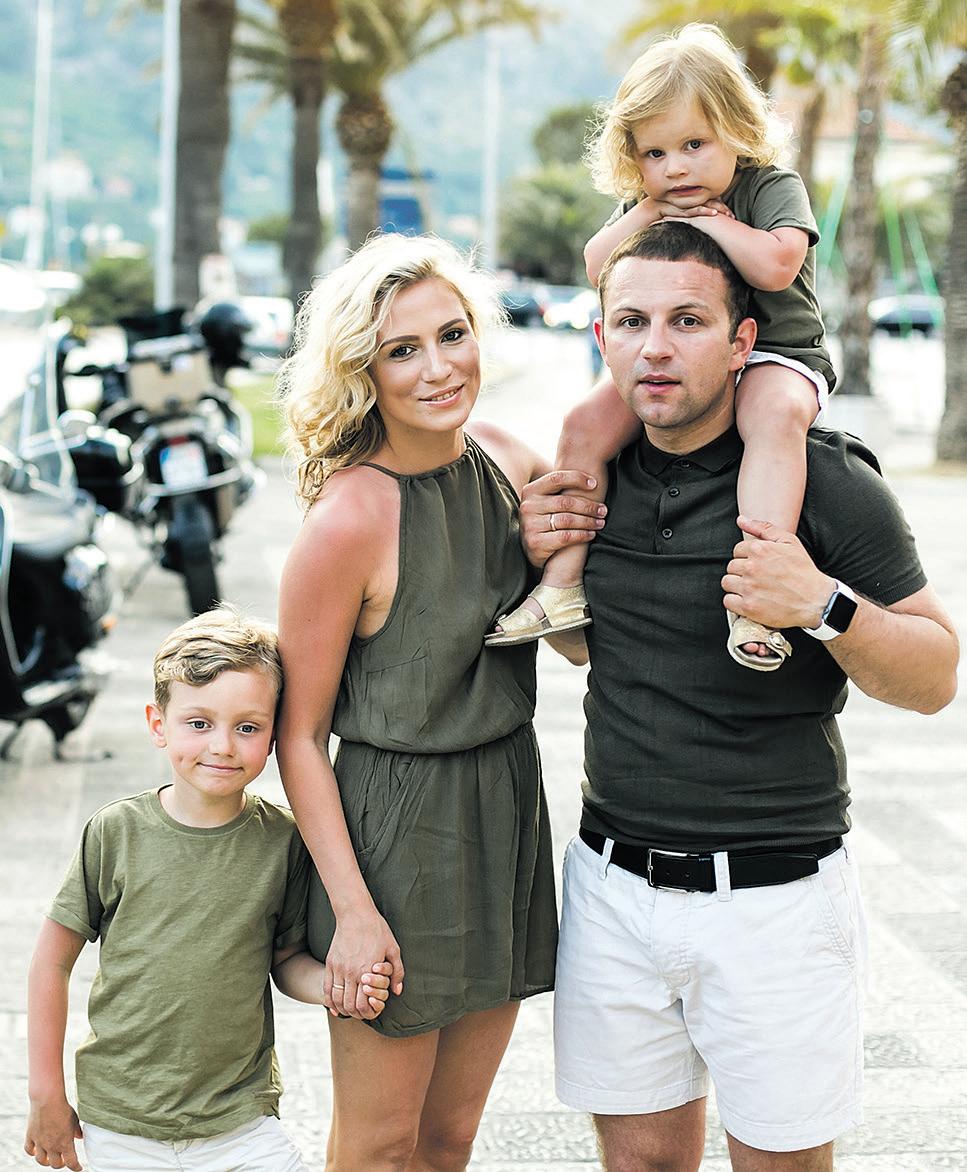
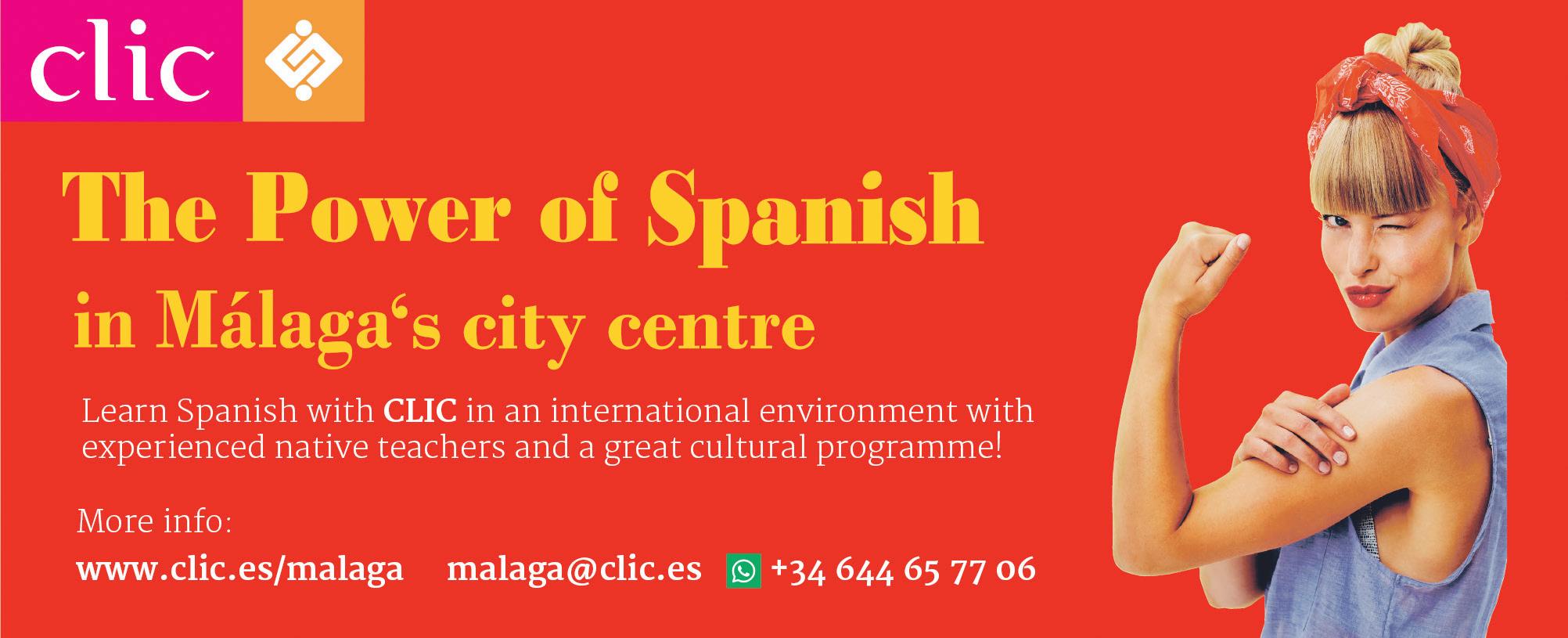
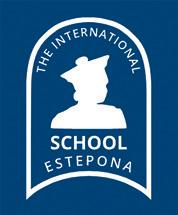
THE International School Estepona was established in 2004 and is located in El Paraiso, Estepona and is currently home to just over 100 children from two-12 years. The School has its own car park. The ISE follows the National Curriculum of England and Wales with English being the first language. It is monitored by The British Council on a regular basis. The School is the only member of the National Association of British Schools in Spain (NABSS) in Estepona and is fully approved as a British School by the Junta de Andalucia Education Department. Spanish is taught as a second language with lessons
lasting one hour per day.
The School prides itself in being a welcoming nurturing environment for children from all over the world.
The ‘Community Spirit’ is very noticeable especially during major events such as ‘the School Play’ and annual ‘Sports Day’ which all parents and relatives are invited to.
All staff are fully qualified and there are class room assistants to help in the delivery of the Curriculum. Children’s progress is closely monitored and a termly report is provided on a regular basis. Extra help with the English Language can be provided if required.
The School also has regular field
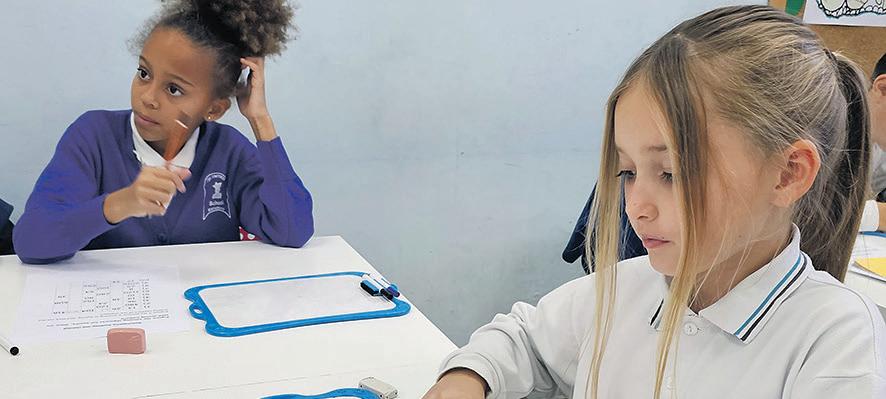
LOCATED in the heart of Malaga, CLIC International House is a renowned Spanish language school offering high-quality courses. With over 40 years of experience, CLIC provides an immersive and dynamic learning environment, attracting students from all over the world.
Why Choose CLIC Malaga?
Prime Location: Near the beach and city centre, surrounded by history and culture.
Expert Teachers: Native-speaking, experienced, and passionate professionals.
trips to local places of interest which the children thoroughly enjoy. Sport and PE is a regular part of the School week on Tuesdays and Thursdays. This includes sports such as Football, Rounders and Cricket to name but a few.
The older children in Year 6 are adequately prepared for Secondary School to ensure a smooth transition into their next phase of education.
The teachers are constantly available to discuss concerns and progress by making an appointment. All parents have their class teacher’s direct email address.
Please feel free to visit www. marbellaschool.com for further



Diverse Courses: Intensive, private lessons, Summer Camp for Young Adults, Spanish for 50+ or Spanish + Field Hockey.
Cultural Immersion: Activities, excursions, and social events enhance learning.
Flexible Accommodation: Host families, shared apartments, or private studios.
Class Structure: Interactive, student-centred methodology focusing on communication and real-life practice.
FUNDAE Accredited: Companies can benefit from subsidies for employee language courses.
CLIC Malaga is accredited by Instituto Cervantes and part of International House and IALC, ensuring top-quality education. The school fosters a friendly, multicultural atmosphere where students form lasting friendships while improving their Spanish skills. Whether you need Spanish for work, travel, or personal growth, CLIC Malaga offers a unique learning experience combining education with cultural discovery.
Start your Spanish journey today! Visit www.clic.es/malaga or email malaga@clic.es to learn more.
information and also Facebook and Instagram to see recent news at the School. The School also uses the ‘Konvoko’ App to keep parents up-to-date on important announcements. Just Search ‘International School Estepona’ on the app.
The School has holiday clubs every school holiday including half term.
For further information on Enrolment or clubs please visit www.marbellaschool.com and click ‘contact us’ or call Miss Daniela on 951 742 736, email daniela@marbellaschool.com, or WhatsApp +34 635 347 023
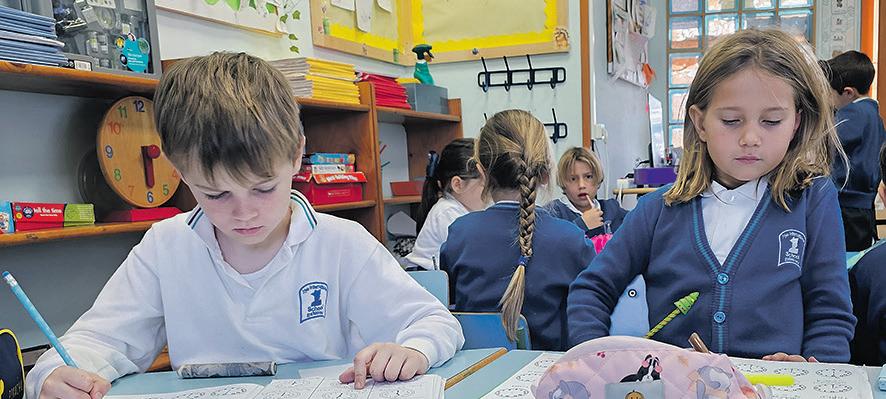
IN 2024, online learning participation in the EU increased, with 33 per cent of internet users taking courses or using educational materials which is 3 per cent more than in 2023.
Ireland had the highest engagement (61 per cent), followed by the Netherlands (59 per cent) and Finland (53 per cent). In contrast, Romania (10 per cent), Cyprus (11 per cent), and Bulgaria (17 per cent) had the lowest rates.
Structured online courses attracted 18 per cent of internet users, with Ireland leading (36 per cent), followed by Finland and Spain (32 per cent). Meanwhile, 29 per cent used online learning materials, with the Netherlands (53 per cent), Ireland (52 per cent), and Finland (46 per cent) topping the list.
cybersecurity, and digital marketing,
with 40 per cent of top courses focusing on AI. Platforms like Coursera saw growing demand for job-related content, as well as courses on soft skills and personal interests.
Despite the rise in online education, only 17 per cent of EU citizens aged 16–74 took online courses, with another 17 per cent learning for personal reasons. The internet remains primarily used for communication, with 85 per cent making calls or messaging and 80 per cent using email.

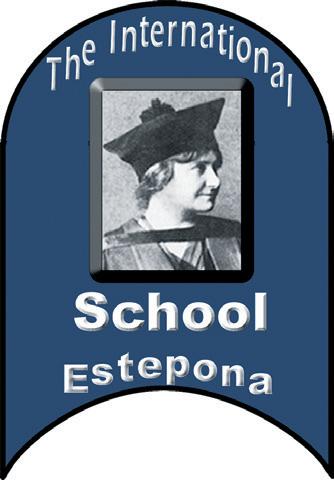







THE Swedish International School situated between Estepona town centre and San Pedro Alcantara, a suburb of Marbella, offers students a Swedish education but with the added bonus of Spanish elements.
THE school prides itself on the fact that its students aged from three to 18 benefit from big features of Spanish language and culture, keeping classes to a maximum of 16 (15 in the kindergarten), each child can be assured of the ongoing attention of a qualified teacher. SIS offers a safe and comfortable environment for all students no matter what age they may be or indeed their level of achievement. As the school was only opened in 2023, everything, including the concept behind the schooling is new and up-to-date.
Whether a family is in Spain because one of the parents is on a set time contract or if the family has made the decision to settle in Spain, the intention is to prepare all of the children in a way which would ensure that they could easily fit back into school or college if they return to Sweden.
But it’s not all about Sweden as
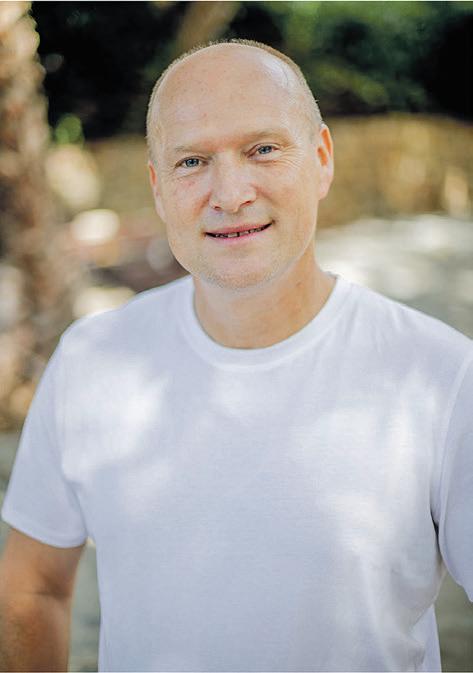
those attending will be helped to settle into Spain and the Spanish way of life rather than them feeling completely out of place if they went
straight to a Spanish school. English which is still a very useful language almost everywhere in the world also takes a big part of the environment with the aim of helping each student achieve as much as possible.
Another really important feature of the curriculum is that as children get older and work perhaps becomes more complicated, there is a special house within the campus where they have access to remote teaching via computers with qualified tutors specialised in individual topics such as mathematics who are based in Sweden thus dramatically expanding the quality and variety of teaching. Unlike some schools of old, the ethic here is to include both children and parents in much of the decision making and the students are encouraged to share their thoughts in a number of areas and as well as parent evenings, because the school is relatively small, Principal Goran
DESPITE Brexit’s shake-ups, the UK and Spanish education authorities continue working closely together, making British education schools on the Costa del Sol as attractive as ever among expat and local parents.
In a landmark deal signed in 2023, British Ambassador Hugh Elliott, Spain’s Education Minister Pilar Alegría, and Universities Minister Joan Subirats, an agreement was made to simplify university access, allowing UK A-Level holders skip Spain’s general entrance exam (except for competitive courses) and ensuring those who studied in Spain enter UK universities with legal certainty.
The pact, between Spain’s Ministry of Education and the UK’s Department for Education, aligns A-Levels
with the Spain’s system via a conversion table from UCAS and UNED. It was a win for the 100+ British schools in Spain, inspected by UK-approved bodies via the British Council, which also supports bilingual programs in 90 primary and 58 secondary Spanish schools. This collaboration is aimed at a shared goal: toptier education and cultural exchange.
In Spain, both expat and local parents love a British education for their kids, and for good reason too. The UK curriculum (GCSEs, A-Levels) is world-class, prepping kids for elite universities globally.
English fluency gives students a clear career edge, while smaller classes offer a more tailored attention.
With qualifications now seamlessly recognised, thanks to the deal, British
Holm welcomes parents at the school gates, especially in the case of those attending the kindergarten. Sport, healthy lifestyle and focused activity is an important part of attending the Swedish International School and one of the teachers is actually a professional basketball player. All nationalities are welcome to enrol at the school and currently there is a real mix in the kindergarten, still keeping the emphasis on a majority of the Swedish curriculum, Spanish and English is a big part of the younger students. All in order to adapt students well to the Spanish culture and language.
Visit https://www.sweintschool. com to find out more about the Swedish International School and parents who think that this may be the ideal option for their child are advised to complete a short online expression of interest.
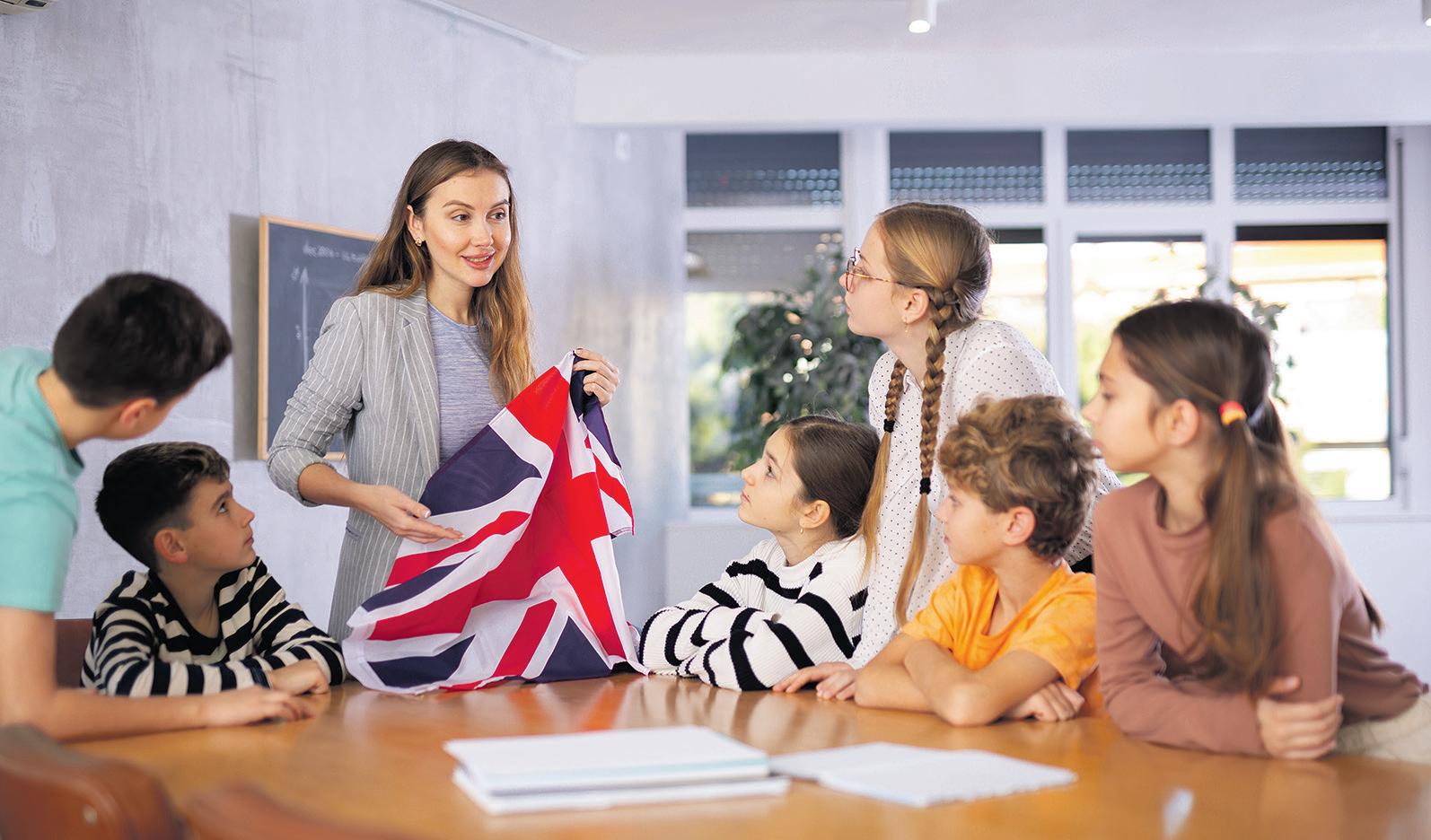
education on the Costa del Sol offers flexibility, prestige, and a bilingual boost in a safe and pleasant environment. For families eyeing a bright future, it’s a clear choice for so many.
The bilingual programmes are educational initiatives designed to teach students in two languages, two cultures, and blending academic
with language development to foster fluency in both. On the Costa del Sol, and across Spain, these programmes often pair Spanish with English, reflecting the region’s international appeal and the global value of bilingualism. They aim to create well-rounded learners who can thrive in multicultural settings, balancing native proficiency with a second
Credit: BearFotos - Shutterstock
language’s mastery. Bilingual programmes boost cognitive skills (problemsolving, multitasking), open doors to global universities and jobs, and enrich cultural awareness. On the Costa del Sol, they’re a hit with expat and local parents alike, offering children a competitive edge in a connected world while honouring local roots. It’s education that speaks two languages, and fluently.

FROM September this year, all vocational training will be dual in the first year, which applies to Intermediate and Advanced Vocational Education. This means that students will receive training at both vocational education schools and within companies relevant to their course.
Within this new system, it is anticipated that students will carry out more than 35 per cent of their total training ‘on the job’. Moreover, the participating companies will be responsible for more than 30 per cent of the assessment that determines if the student has successfully completed their studies to the required standard. This new way of working is intended to be fully implemented in the 2025/26 school year.
This decree was approved following a proposal that was submitted by the Ministry of Education, Vocational
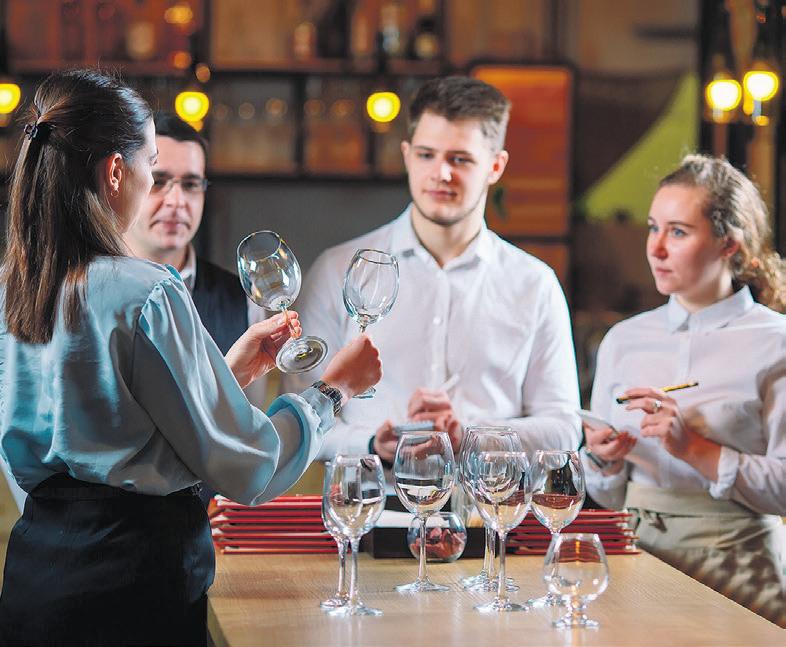
Training and Sports (MEFD) in May 2024. It is believed that it will enhance the appeal of graduating students to future employers, having already had significant demonstrable hands-on experience.
As stated above, this new approach will apply to both
Intermediate Vocational Training (ISCED 354), and Advanced Vocational Training (ISCED 554).
Moving with the times, the vocational subjects covered will be expanded to include digitalisation, sustainability, entrepreneurship, and technical English skills,
which are deemed to be essential for communication in an increasingly globalised work environment. The aim is to equip students with relevant skills for the future and better prepare them for the challenges they could have to face as part of a modern workforce.
Many countries across Europe have embraced vocational education; Germany, in particular, is said to be leading the way. In fact, its System of Vocational Education (SVE) is considered to be the most successful model in the world today. So much so, that more than half of school graduates select the option of vocational training. They particularly favour the well-established dual education model, and have proven that the collaborative approach between educational institutions and businesses works extremely well. At the
mobility is shifting as more students explore diverse study destinations beyond traditional favourites like Canada, the US, Australia, and the UK.
These countries, known for academic excellence and career prospects, have introduced recent policy changes that are prompting students to consider alternatives. Europe is emerging as a strong contender, offering high-quality education, affordable tuition, industryrelevant courses, and welcoming environments.
Seven European countriesGermany, France, Spain, Italy, Portugal, Malta, and Austriaare gaining popularity. Europe is home to prestigious universities with globally recognised programmes.
France is renowned for arts, sciences, and business, blending rich cultural heritage with great student life. Germany attracts students with its practical, dynamic academic environment, while Spain offers a unique cultural experience,
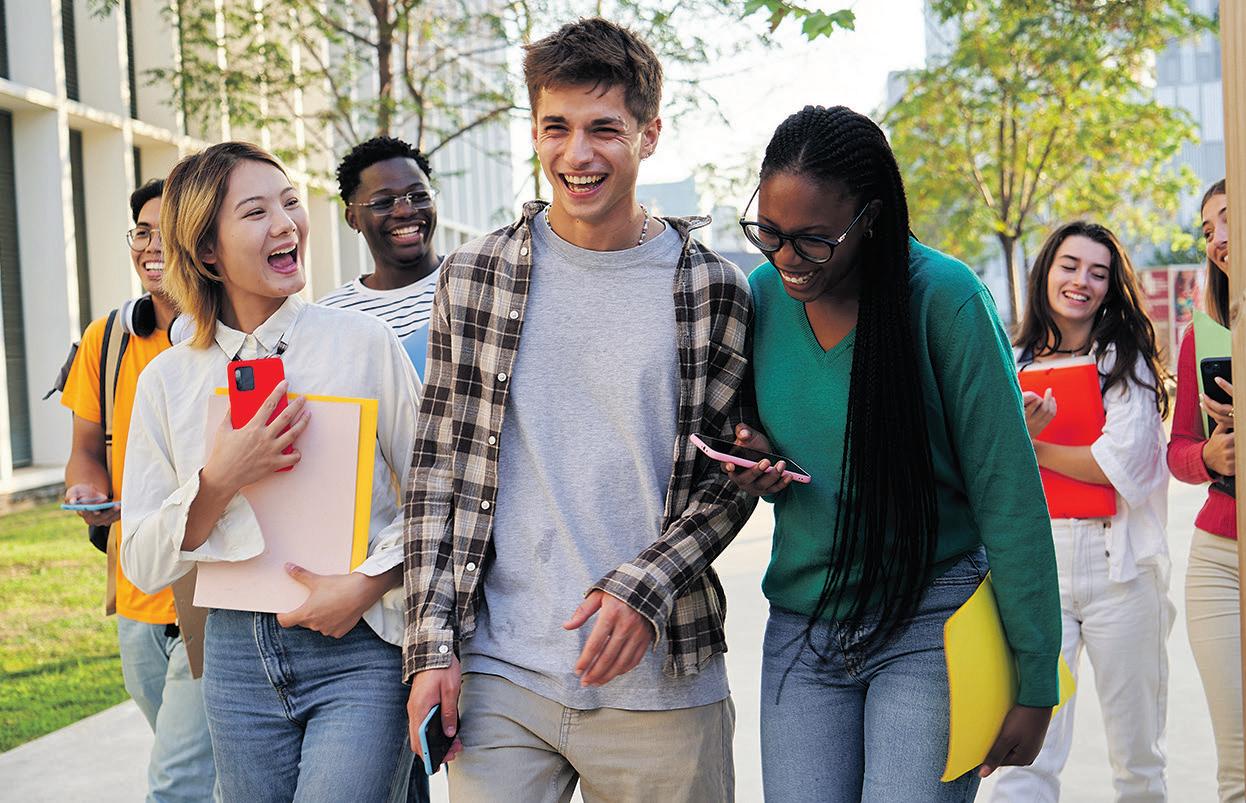
particularly in cities like Madrid and Barcelona.
Many European universities now offer English-taught programmes, making it easier for international students to study without mastering the local language. Countries like Italy, Spain, Portugal, and Austria offer English courses in fields such as technology, arts, business, engineering, and humanities.
Europe also offers strong career opportunities with
industry-aligned education, internship programmes, and post-study work options. Many countries provide residence permits for graduates, allowing them to stay and work after graduation, which is especially appealing for students seeking global career advancement.
While traditional study destinations remain popular, recent policy changes are encouraging students to explore new opportunities in Europe.

heart of Germany’s success is a tie-in with the Federal Employment Agency, which assesses and provides guidance on which types of jobs are in the greatest demand.
This is all very good news for Malaga as the Germanrun dual vocational training school, FEDA has recently announced an exciting new partnership. They have teamed up with the hotel employers’ association, Aehcos, and as such, they are now able to offer training programmes for the tourist sector.
With Germany leading the way in dual vocational training, this provides the perfect opportunity to safeguard and strengthen an industry that is vital to the Costa del Sol economy.
FLOORBALL is an ideal after school activity for children whose parents worry about aggressive competitiveness and potential exclusion in other sports.
Originating in Sweden, this indoor stick-and-ball game prioritises safety and inclusion. Anyone, no matter what level of fitness or ability can play.
Rules ban rough play, with low-cost, lightweight gear, it’s accessible to all sizes and skill levels, needing just a stick and training shoes, and not costly pads. Teams rotate five players plus a goalie every one - two minutes, ensuring everyone plays.
Unlike win-obsessed sports, floorball balances competition with fun, with not just one star scorer, and fostering teamwork over rivalry.
A 2022 International Floorball Federation survey found 87 per cent of parents praised its ‘nonpressured’ vibe with a full-body workout, running, coordination. It doesn’t need specialised training and builds social bonds.
Children left on the bench elsewhere find a forgiving entry here, with Swedish schools boasting more participation than many other sports.
For parents, it’s relief: energy burns off without bruises or elitism. While top-flight leagues can get intense, floorball’s rise (300,000+ players globally by 2024) fills a gap.
It’s competitive enough to engage, inclusive enough to welcome all, yet perfect for dodging the aggro and exclusion of traditional sports. Children thrive, parents relax.


SVENSKA SKOLAN MARBELLA is delighted to announce that enrolment is now open for the 2025/26 academic year for Years 7, 8, and 9. We are proud to offer a unique and enriching educational experience through the full implementation of the International curriculum, making us a beacon of globally recognised education in a nurturing, multicultural environment.
Our journey into the International curriculum began with a remarkable milestone this past September when we launched Year 8, welcoming over 20 new students who have already made incredible progress. Guided by our dedicated international teaching staff, these students are thriving in a personalised learning environment that
from the Swedish school system while embracing the challenges and opportunities of global education.
Though we are situated within a Swedish School, Svenska Skolan Marbella is a fully recognised Cambridge International School where all lessons are taught in english. This means our students benefit from a curriculum that opens doors to future opportunities worldwide. Our small school setting fosters a close-knit, supportive community where every student is valued, nurtured, and empowered to succeed, ensuring that each student receives the attention they deserve.
young minds grow academically and socially, learning to appreciate different cultures, perspectives and backgrounds. At Svenska Skolan Marbella, students are prepared not only for academic success but also for life as globally minded citizens.
Don’t miss this chance to be part of a school that combines academic growth, personalised care, and a vibrant multicultural environment. Secure your child’s place for the 2025/26 academic year today and join our growing community of learners.

The diversity of our staff and student body adds a culturally enriching dimension to daily life, creating an atmosphere where



For more information or to arrange a visit, contact us on international@ svenskaskolanmarbella.com. Website www. svenskaskolanmarbella.com/ internationalcurriculum
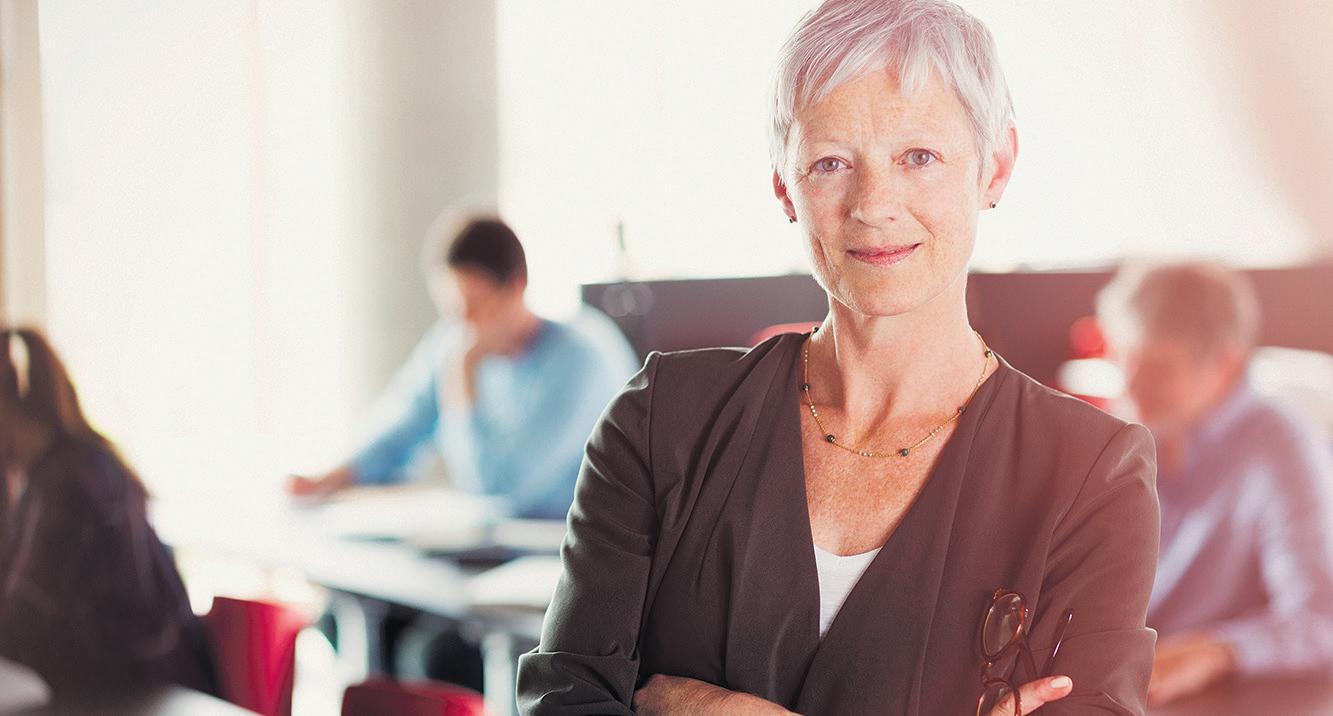
A NEW OECD study shows that Finnish adults lead in literacy, maths, and problem-solving skills, ranking highest among the countries surveyed. Sweden, Norway, and the Netherlands follow closely behind in these areas. In contrast, countries like Portugal, Poland, Italy, and Lithuania scored below the OECD average in all three skill categories.
Poland scored 226, Lithuania 230, Italy 231, and Portugal 233 points on a scale from 0 to 500 in
adaptive problem-solving.
Despite efforts to improve education and adult training systems, the study reveals a growing skills gap, with many adults unprepared for future challenges. Andreas Schleicher and Stefano Scarpetta, from the OECD, highlighted the uneven skills landscape.
The study, based on surveys of 160,000 adults across 31 countries, also found that older adults (5565) performed worse in all areas compared to younger adults, with the best results
seen in those aged 25-34. Additionally, adults with highly educated parents scored higher in literacy than those with less-educated parents. Spain was noted for having the smallest skill gap between adults from different socio-economic backgrounds, with only a seven-point difference in literacy scores. Finally, the study found that adults with higher numeracy skills tend to have better employment prospects, higher wages, and greater life satisfaction.
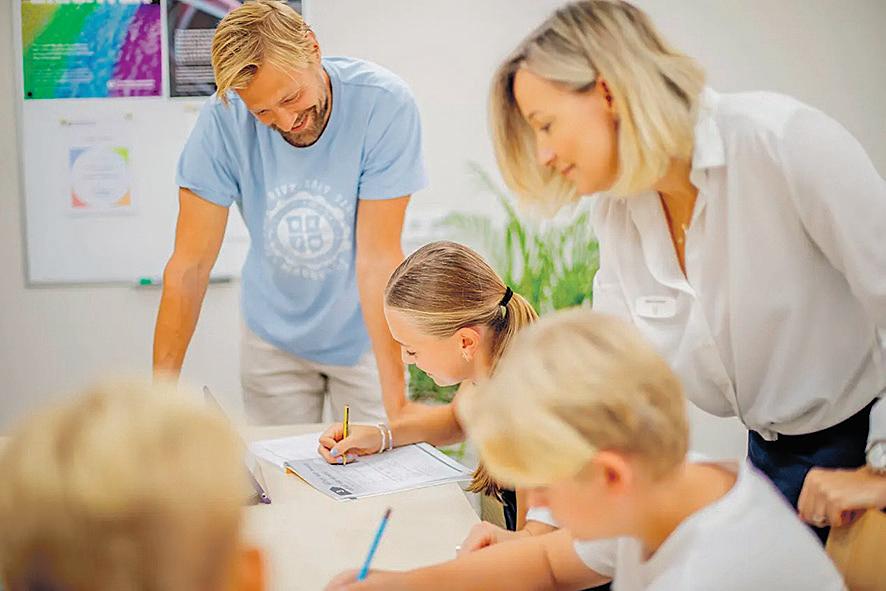
MOVING to Spain as a child was not my decision. If it had been, I would have stayed in Ireland with my friends and older siblings, surrounded by the familiar. Leaving everything behind felt overwhelming, but with hindsight, I know it was the best thing my parents ever did for me.
Adapting to a new education system was one of the biggest challenges. My parents assumed school would be the same as in Ireland, but we quickly learned otherwise.
Once they realised things were different, they took the time to understand school timetables and grading systems and to improve communication with teachers and administrators. They also found the parents of other children a great resource. Back then, staying connected with home wasn’t as easy as it is today, which, in some ways, helped. Without the pull of constant contact, I focused on building a new life in Spain. Language was the biggest barrier. I was the only native English speaker in my school, but
as a child, I picked up Spanish faster than my parents. My father led by example. He made light of his mistakes, and that gave me the confidence I needed. At times, the constant effort to understand left me exhausted. Those moments of exhaustion became fewer and further between. Before I knew it, I was participating more - without even thinking about it. One day, I was telling some classmates about a movie I had watched at home over the weekend. I couldn’t remember if I had seen it on one of the Spanish or English TV channels. That was the moment I realised I spoke Spanish. Extracurricular activities also helped. My school encouraged participation in sports, music, and clubs- creating opportunities to make friends and understand Spanish culture. I learned Spanish best through music. Even now, I probably know more Spanish lyrics than English ones. Looking back, I know moving to Spain was the best thing my parents ever did for me. What once felt like a foreign country is now my home.

FUENGIROLA LIONS have a passion for inline hockey and fun fitness. It’s a sport that has grown exponentially in recent years on the Costa del Sol. The Fuengirola LIONS is a multi-cultural and multi-national club with over 30 nationalities playing, and it is a sport anyone can get into.
At a top level, they play in the Spanish national league, La Liga MAPAX Challenger, and against their sister teams Knights, Vikings, Latin Team and Blues in the Liga Andalucia.
Unlike many other team sports, hockey and Fuengirola LIONS are all about everyone and anyone playing. As well as five age groups for inline hockey, they have junior ice hockey played at the Palacio del Hielo in Arroyo de la Miel, and floorball at Los Boliches school, a game that is taking off globally as it is inclusive of everyone regardless of experience or ability.
Easy access to be part of the organisation, as everyone has been new at some point, they also have 30 sets of different size equipment, so anyone, or for that matter schools, can come and try
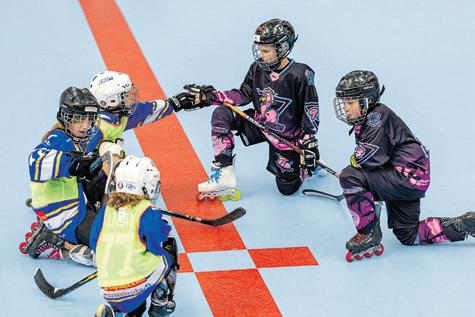
inline hockey and floorball without having to invest previously in the equipment.
In floorball, they have pickup games for different groups and also more friendly tournaments will be organised as they have a special technical plastic floor for it.
Fuengirola LIONS is unique due to its diverse, multicultural, no common language mix. The only common thing they have is the passion for hockey and love for the sport.
Hockey is for everyone and they have a great active community where no one is left aside. They have highly qualified trainers and an excellent atmosphere, working actively in integration and an anti-bullying

environment. For those moving to the Costa del Sol who don’t know the language well, it is often hard to find activities and friends. But, everyone is warmly welcomed to LIONS. Hockey is all about motivation, better mental health, making lasting relationships, camaraderie, and keeping in shape.

At the moment, inline hockey practice is on Tuesdays and Thursdays from 4pm till 11pm, and floorball on Mondays and Wednesdays from 6.00pm till 8.00pm, with ice hockey on occasional Sundays.
Fuengirola LIONS inline hockey are located in Santa Fe de Los Boliches, next to the football field and opposite the
Mercadona supermarket and Nuriasol apartments. The easiest way to find them is through Google Maps, typing ‘Fuengirola LIONS,’ just like over 300,000 others have already done.
fuengirolalions@gmail.com
FACEBOOK: www.facebook.com/ LionsHockeyFuengirola
INSTAGRAM: www.instagram.com/ lionsinlinehockey
TIKTOK: www.tiktok.com/@ lionsinlinehockey
WHEN a family decides to move home, it invariably means moving schools, which, to a child, can feel like the worst feeling in the world as they worry about losing contact with their friends and letting go of everything that feels familiar and comforting to them.
If that move is a more dramatic one, that means moving countries, the changes and challenges are tenfold and perhaps even more daunting. However, ‘change’ is very much a part of life, and once those initial ‘fear’ hurdles have been overcome, embracing change as a child can, for the most part, be a very good thing. It provides a stronger coping mechanism for life as an adult and can broaden horizons and outlook.
Attending school in a foreign country isn’t just about learning a new language, but about a whole new school system, too. Parents and children
need to quickly get to grips with the compulsory years of schooling, when children change schools, how they are graded, and what is considered a strong academic achievement.
lasting for a two-year period.
Throughout their primary education, children are assessed and graded and, if necessary, will be required to repeat a year, should they not obtain the necessary grades/ of 12 and must remain in education until the age of 16 or until they have completed the obligatory four years.
At this point, provided they have achieved the necessary results, they will be awarded with a Graduate of Secondary Education Certificate.

These young adults now have the choice to leave, to study for the two-year Bachillerato academic course, or to enrol in practical training courses known as modules. If the Bachillerato is chosen, students can expect to receive specialised training in several subjects, including sciences, humanities, and arts. At the end, an exam will be taken, which will enable them to be awarded the Spanish Baccalaureate (Bachillerato certificate) and bring them one step closer to attending university if that is the path they choose to take.
To enter one of the 89 universities in Spain, students must not only receive their Bachillerato certificate but also pass the university entrance exam known as ‘Selectividad’.

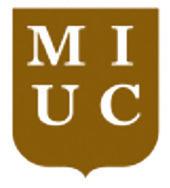
HAVE you ever dreamed of studying in a breathtaking location? Imagine learning in a vibrant international community, surrounded by ancient Roman ruins, sunny skies, and a Mediterranean lifestyle.
At Marbella International University Centre (MIUC), this dream becomes reality.
As a distinguished campus of the University of West London in Spain, MIUC offers you the unique opportunity to earn a British-accredited degree while enjoying the stunning surroundings of southern Spain. But MIUC is more than just an exceptional education- it’s a transformative experience.
Academic Excellence
MIUC offers undergraduate and postgraduate programmes, all taught in English, with a strong focus on International Business Management, Marketing & Social Media, and Politics & International Relations. New for the 2025/2026 academic year, we are introducing our highly anticipated MBA programme (limited places available). Our courses are designed with realworld case studies, industry insights,
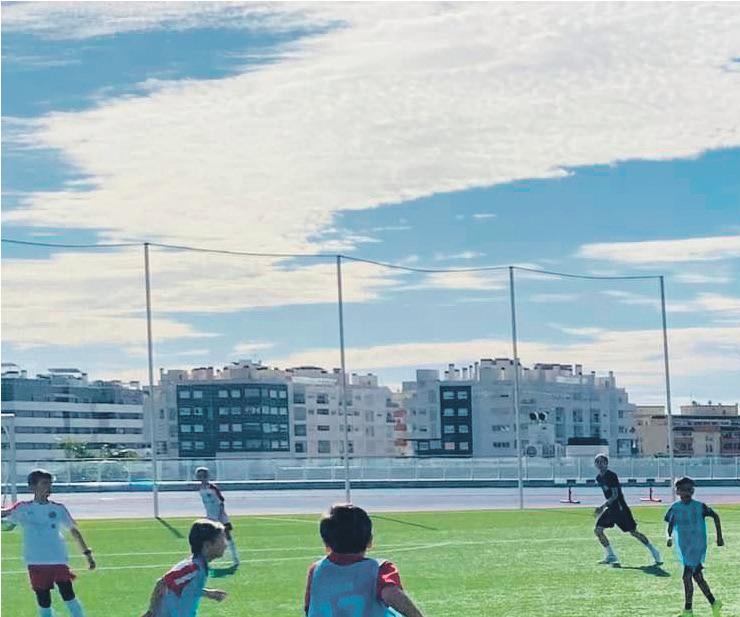

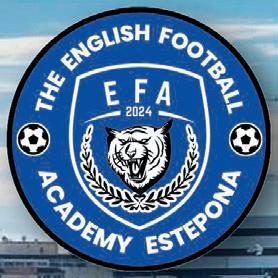


and hands-on experience to prepare you for success in today’s competitive global job market.
A Prestigious UK Partnership Through our exclusive partnership
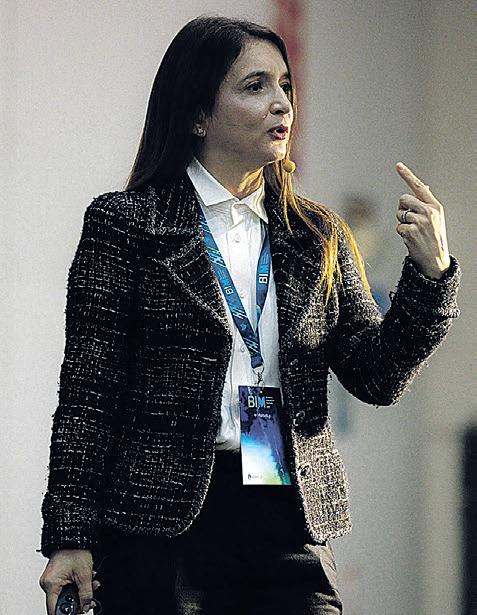
Learning & Global Connections
over 90 nationalities, you’ll expand your global network while immersing yourself in a dynamic, multicultural environment. We also provide exclusive internship opportunities, ensuring you graduate with practical experience that sets you apart in the job market.
Located on Spain’s picturesque Costa del Sol, Marbella is more than just an academic hub - it’s a lifestyle. With its Mediterranean climate, international business opportunities, top-tier global schools, and lower cost of living compared to major European cities, Marbella is the perfect place to study, network, and build your future. Plus, its proximity to Malaga airport makes international travel seamless. Your Future Starts Here
Why settle for an ordinary university experience when you can have the best of both worlds - academic excellence and an enviable lifestyle?


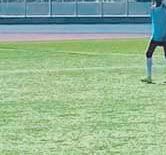
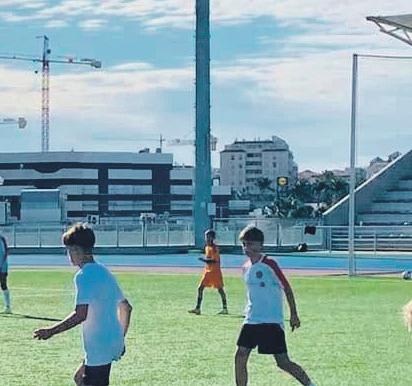
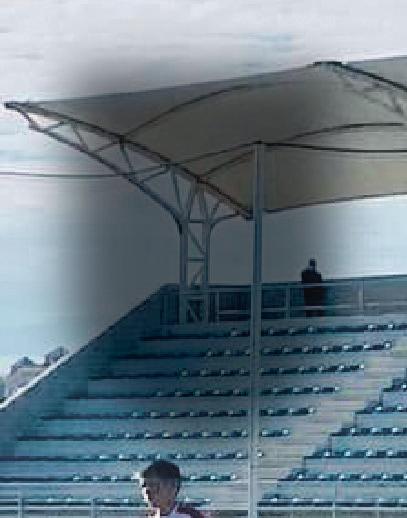
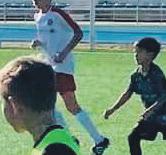


Join MIUC and earn a prestigious UK degree while living in paradise. Applications for October 2025 are now open - apply today!
A STUDY carried out by Cambridge University in the UK continues to support the notion of subject stereotypes for male and female students. There seem to be substantial differences in the subjects that male and female students lean towards when it comes to making academic choices.
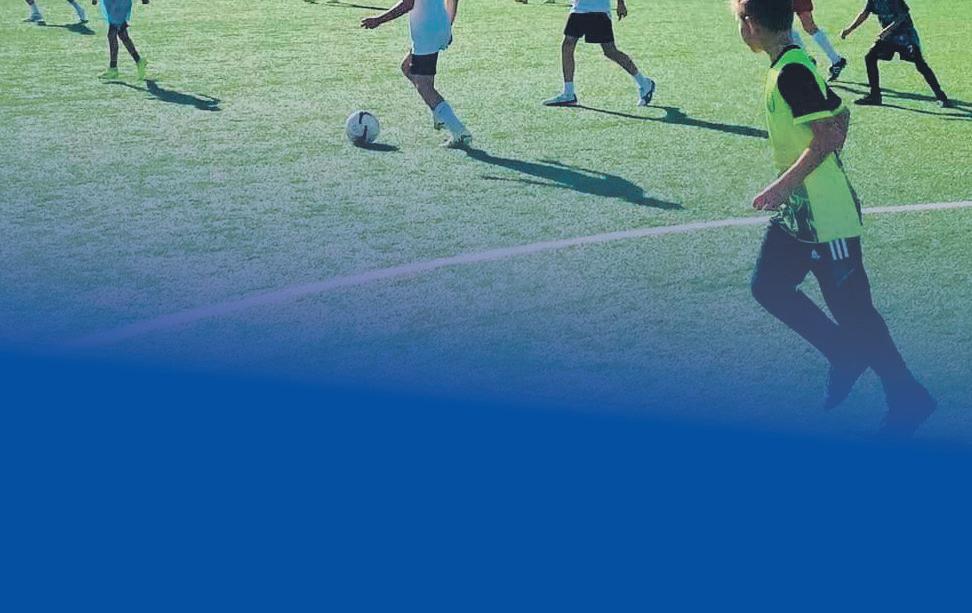
For example, at senior school, the data showed that a much higher number of females than males leaned towards the arts, social sciences, and languages. Conversely, the male students tended to lean towards sciences, technology, classical subjects, and business.
stage (age 16 to 18), there is a shift amongst the male students towards more creative subjects like music. Conversely, aside from physics, all other sciences demonstrate a shift towards female students and lesser male dominance. In fact, in the case of biology, the trend is towards a stronger female dominance, with more females going on to study medicine and dentistry at university.
However, one area that still bears the hallmarks of male stereotypical dominance is the STEM subjects of engineering, technology, and mathematics. In fact, the data shows that the gender gap is continuing to grow, which begs the question: what are the implications of these gender-based patterns likely to be in the labour market of the future?







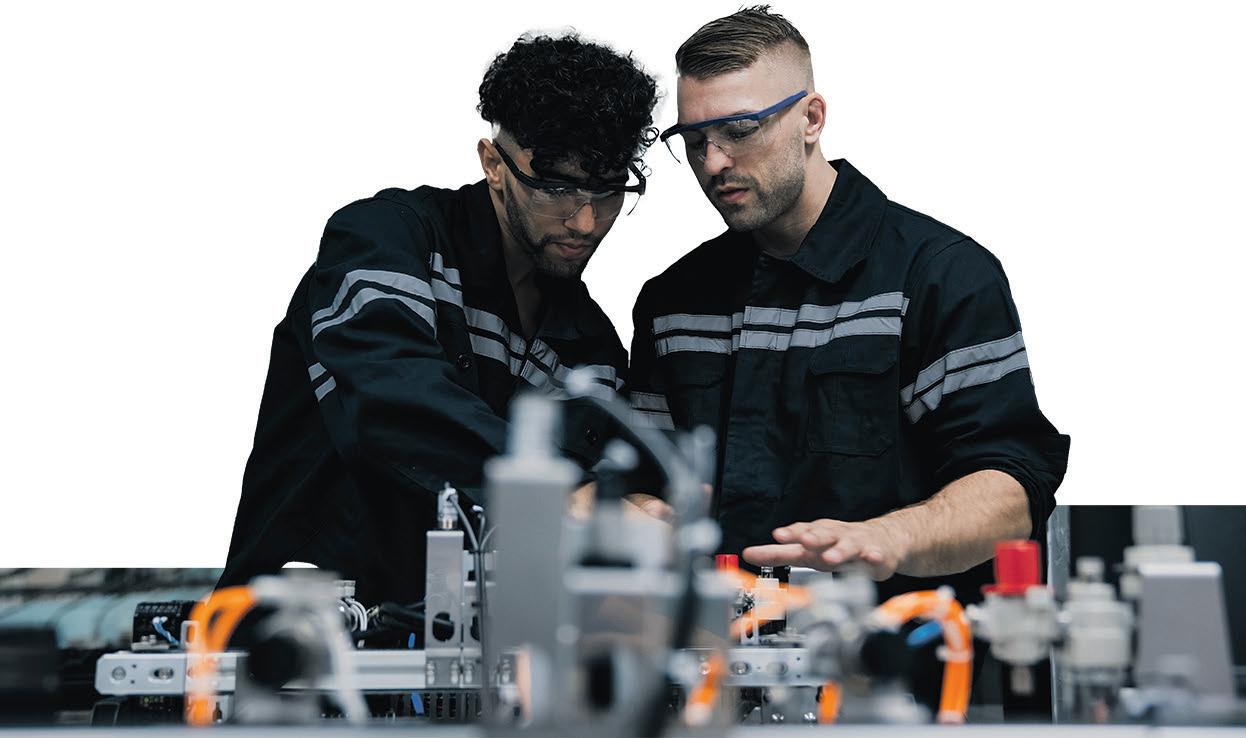

IF you are looking for a great school for your child, look no further than The Benalmadena International College - we are now currently enrolling new students for September 2024 and have some availability for immediate starts.
We are one of the most established British owned and managed schools on the Costa del Sol. We have been a delivering high quality British curriculum to young people from all over the world, for almost 30 years. We are truly international and are proud that our students are able to adapt so easily given the high levels of intercultural understanding, acceptance of new students and general welcoming atmosphere. Given our experience and small class sizes, we are used to receiving students with many different starting points and can boast year on year about fantastic results.
Our academic curriculum offer is wide. We follow the English National curriculum which enables our students to access internationally recognised and respected qualifications, with a trouble-free transition between other British and International schools. We are also UK inspected by ISI which conducts inspections of all private schools within the UK, therefore, we operate to the highest possible standards and offering the highest quality
of education to our students. Equally we also offer accredited Spanish qualifications to enable homologation of UK qualifications within Spain at the end of your child’s studies with us. Whilst our academic offering is extremely important, we are always striving to offer our students the best experiences to enables them to be even more internationally minded and culturally aware.
Some of our recent school trips have included our annual year 6 residential in El Chorro, study trips to Amsterdam, London and as far as New York! Looking ahead we have plans to extend our offer further via our Erasmus educational links. Exciting opportunities are certainly ahead for our students!
Our facilities are fantastic and we have always invested heavily in school infrastructure including most recently a new primary building. Why? Because the environment where young people learn is key to ensuring that our students are comfortable in their learning ensuring that they have every opportunity available to them whilst at school.
Our sports programme includes a wide range of activities. We regularly host inter sports competitions with our competitors. Looking ahead we are currently developing a large multipurpose sports complex, including gymnasium, swimming pool, spa and restaurant facilities. We do not stop in
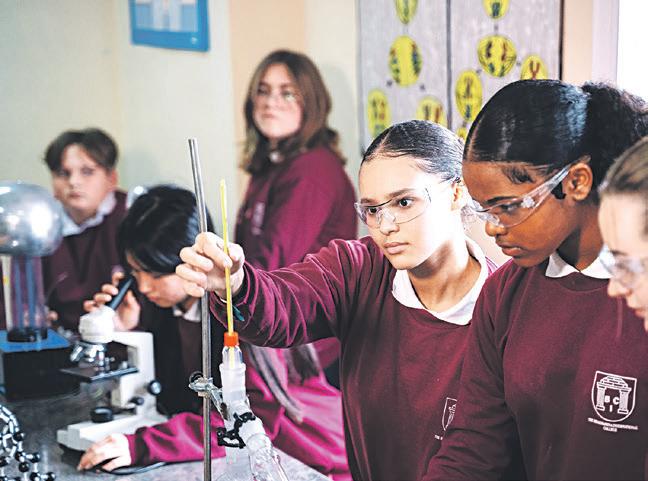
our quest to provide the best for our young people and families! So, if you are looking for a truly pupil centred environment for your child, please look no further than The Benalmadena International College.
Come and see for yourselves and speak to our outstanding students and teachers. You will not fail to be impressed by our fantastic school. Simply drop in or make an appointment.
Nueva Torrequebrada, C. Catamarán, s/n, 29630 Benalmadena, Malaga 952 561 666 bic-benal.com
SPAIN has implemented a nationwide ban on mobile phones in schools, with every autonomous community adopting the measure. The exact rules vary by region, but the main objective of this measure remains the same: to improve student focus and to reduce distractions and cyberbullying.
One year after the Ministry of Education and the State School Council recommended prohibiting mobile use during school hours, all regional governments have introduced regulations or guidelines to enforce the ban. Though official data is still pending, education authorities report better classroom behaviour and increased student interaction.
Most regions of Spain agree on a strict ban in preschool and primary school, with many extending restrictions to secondary education. Some allow limited educational use under teacher supervision,

while others give schools flexibility in how they enforce the rule.
Regions like Andalucia, Valencia, La Rioja, Navarra, and the Balearic Islands let schools decide how to regulate mobile use based on their own digital and behavioural policies.
In Andalucia, the local government is working on turning the mobile phone restriction into a formal regulation.
The Andalucian school authorities suggest that even for educational purposes, mobile use should only be
permitted from the third year of secondary school.
Studies across the globe suggest that removing mobile phones from classrooms has a positive impact on learning. Some research shows that mobile phone bans improve academic performance,
concentration, and overall student well-being. A UNESCO report highlights that when students are distracted by their phones, they need at least 20 minutes to regain focus time that would otherwise be spent learning.
While most of Spain’s regions introduced their bans in early 2024, some had already implemented restrictions years ago. Castilla y Leon banned mobile phones in schools back in 2007, followed by Castilla-La Mancha in 2014 and Galicia in 2015.
Long-term results are still being evaluated. But those early reports indicate less classroom disruption and better student engagement. Spain’s education system, one of the most appreciated in Europe and around the world, will continue monitoring the effects of the ban to find out its full impact on student learning and wellbeing.





Where potential meets opportunity
ACTIVE KIDS CLUBS offers a comprehensive range of programmes designed to foster the growth and success of children in today’s fastpaced world.
Founded by Sherrie Thomas, an expert with over 25 years of experience in Physical Education and Sports Coaching, Active Kids has become a hub for holistic child development, offering diverse activities in English that cater to every child’s unique needs.
At Active Kids, we understand the importance of well-rounded learning experiences. From creative arts and sports to leadership development and STEM activities, our programmes are crafted to inspire and equip tomorrow’s leaders, thinkers, and doers.
With a focus on nurturing each child’s individual strengths, we offer a variety of exciting options, such as Creative Kids, Swim Kids, Sporty Kids, and Leader Kids, all designed to spark passion and cultivate new skills.
Our Active Kids Camps offer the perfect blend of fun and education during school holidays, while Active Excursions give children a chance to learn through adventure.
Whether exploring museums, attending theatre shows, or
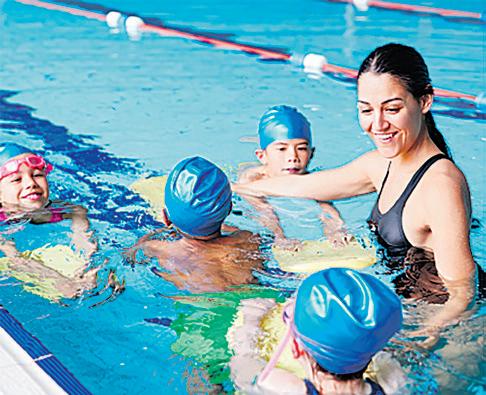
embarking on ski trips, our excursions provide unforgettable experiences.
By providing a range of engaging activities, Active Kids is dedicated to shaping your child’s future with care and attention.
We invite you to explore our Programme Guide and reserve your spot online, or contact us to speak with our friendly team. At Active Kids, your child’s potential is in good hands, and their future is bright.
Tel:+34 628 119 082
Web: www.activekids.es
Email: info@activekids.es
Freewave Sports Centre, Estepona
SWITCHING from primary to secondary school can be a stressful time for young people. One minute, they are the oldest and most settled in the school; the next, they are the youngest, the smallest and the most at unease. Then there are all the other changes to get used to, for example, having multiple teachers, locating the correct classrooms, increased academic pressure,
to bite. Reassure yourself that every parent feels this way, and it is just part of the transition.
When it comes to helping children with their stresses, parents tend to agree that one of the best things you can do is be honest about what they should expect, even the more challenging parts. They may have older siblings or friends who have painted a far worse picture, and a reality check

